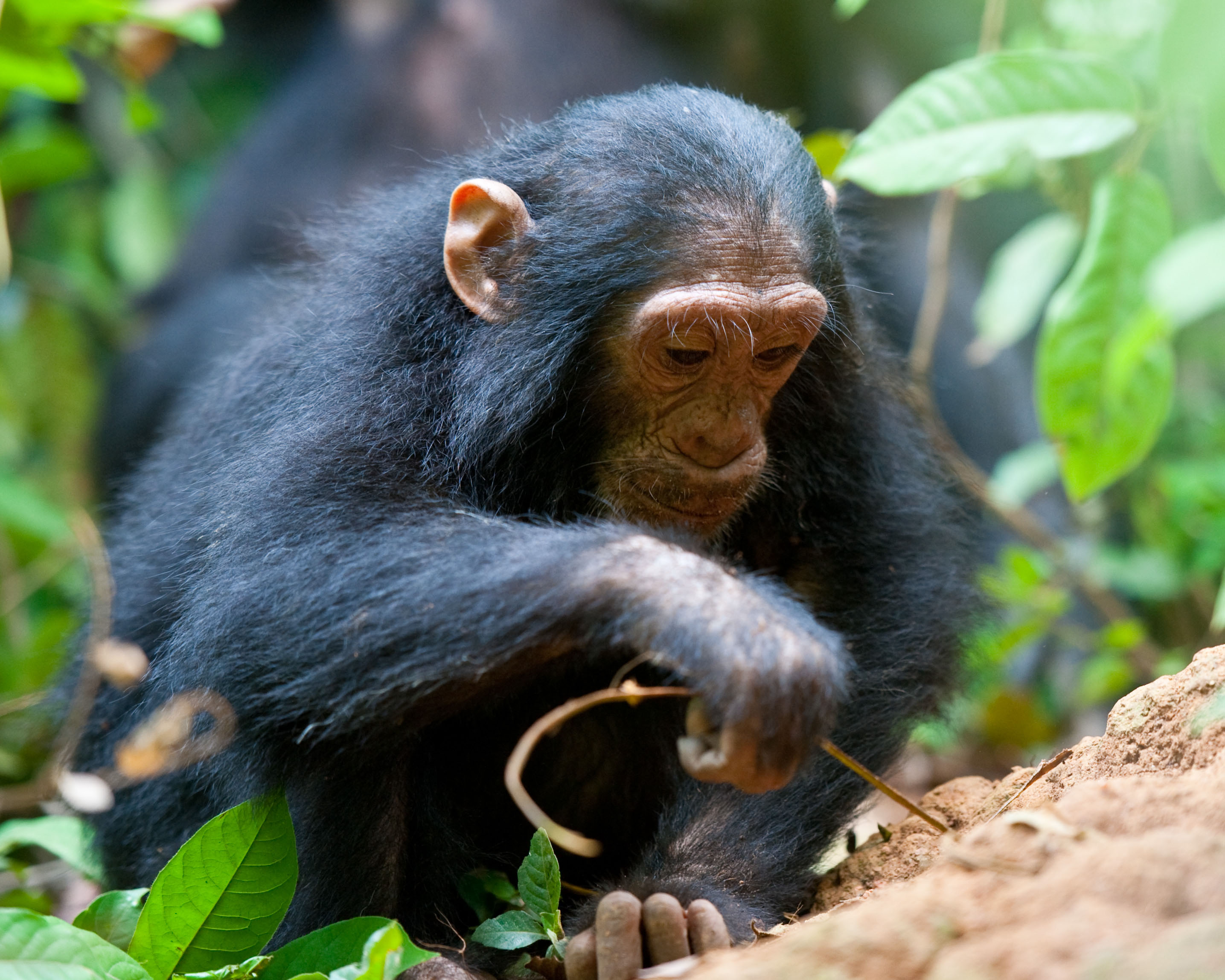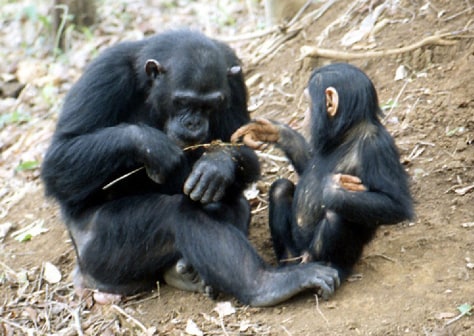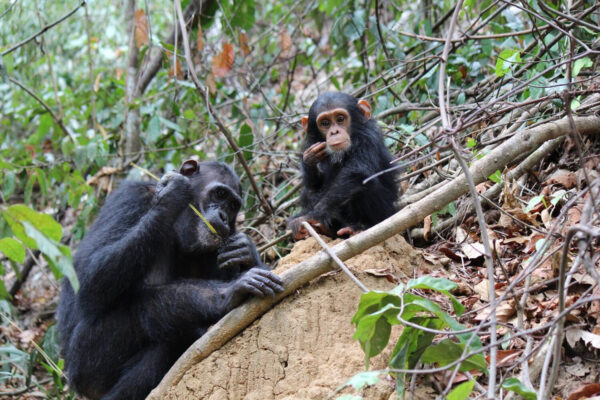Anthropology
Related: About this forumChimpanzees' Termite Fishing Habits Differ by Regional Groups
Some scientists say the finding is an ‘absolute milestone in culture in nature research’
By Nora McGreevy
SMITHSONIANMAG.COM
JUNE 3, 2020
Some scientists say the finding is an ‘absolute milestone in culture in nature research’
Scientists have long understood that chimpanzees lead complex social lives. The primates engage in warfare, have complicated social relationships and experience something akin to mourning.
Many researchers argue that these kinds of inherited local traditions among chimpanzees constitute chimpanzee “culture,” reports Rowan Hooper for New Scientist. In a study published this week in Nature Human Behavior, one team of researchers hope to provide further evidence for chimp culture—and, crucially, cultural diversity—by analyzing another key behavior: their snacking habits.
Led by Christophe Boesch at the Max Planck Institute for Evolutionary Anthropology, researchers analyzed chimpanzee’s “termite fishing” habits across the African continent, according to a statement. Chimpanzees hunt for the nutrient-rich insects by poking sticks inside holes in termite mounds, pulling the stick out with bugs attached and scooping the insects into their mouths. When famed primatologist Jane Goodall first recorded this behavior in chimpanzees nearly 60 years ago, it was the first time an animal besides humans had been recorded using a tool, as Sarah Zielinski reported for Smithsonian magazine in 2010.
Researchers working with the Pan African Programme used remotely operated cameras to study chimps in ten geographically distant communities on the African continent, Bob Yirka reports for Phys.org. Scientists had previously identified only two groups of termite fishers: those who fish in aboveground termite nests, and those who fish in underground ones. After studying the communities, scientists identified 38 technical elements to termite fishing—and found that many chimpanzee groups fish very differently from their neighbors.
More:
https://www.smithsonianmag.com/smart-news/chimpanzees-termite-fishing-habits-might-provide-examples-cultural-diversity-180975028/


Termites for breakfast? Your ancestors might have!
In Animals, Anthropology, Research News, Science & Nature / 17 April 2014
By Micaela Jemison
Termites and ants are not something you’re likely to pour into a cereal bowl for breakfast or munch with toast and tea, but your ancient ancestors almost certainly enjoyed eating them—alive! In fact, new research on the insect-eating behavior of chimpanzees reveals termites and ants are a highly nutritious food that is easily accessible to chimps in the bush. Faced with the same conditions millions of years earlier, researchers say, our hominid ancestors may have gobbled down insects to ease the cravings of an empty stomach.
As a Ph.D. student, Robert O’Malley spent months following a chimpanzee troop in Gombe National Park, Tanzania, recording the insects that they ate and collecting samples to be analyzed at the National Zoo’s Nutrition Laboratory, a part of the Smithsonian Conservation Biology Institute (SCBI). His findings further our understanding of chimpanzee diets and also give us strong insights into the diet of early hominids.
Dr. Goodall, I presume?
Made famous by the research of Dr. Jane Goodall, the Gombe chimpanzees have been studied by scientists for more than 50 years, spanning several chimp generations. By watching these chimpanzee families Goodall not only noted that they often eat insects but also made the discovery that they use tools to reach them.
“Chimpanzees go ‘fishing’ for termites and ants by using sticks or leaves to prod insect mounds. Termite soldiers attack the probe and the chimps pull it out and eat them,” says O’Malley, who works at the Center for the Advanced Study of Hominid Paleobiology at George Washington University. “Many studies have focused on the use of tools by chimpanzees to eat insects but very little has been done on the nutritional benefit of this behavior. We had so many questions: How do they decide which insects to eat…perhaps by observing others in their group? Just how many insects are they eating? Do they eat insects only because they taste good, or is there any real nutritional benefit that has made this a part of their feeding behavior?”
More:
https://insider.si.edu/2014/04/eat-live-termites-breakfast-ancestors-might/



